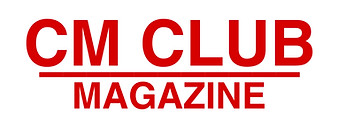The End of Fast Fashion? Five Sustainable Brands Redefining the Industry
- CM CLUB MAGAZINE

- Aug 18, 2024
- 3 min read
Updated: Oct 4, 2024
By Angelica Bernard
Maybe not quite yet. But one thing is certain: the concept of slow fashion is gaining momentum among consumers, unmasking the reality of unethical production and encouraging people to purchase in a more environmentally conscious and respectful way.
The goal is to minimize the negative impact of fashion on the planet and people, while promoting practices that support long-term ecological balance and social equity. Have you ever heard about forced and child labor? Have you ever seen the industrial pollution in the countries where production takes place? Probably.

1. Reformation
Born in Los Angeles as a re-tailored vintage clothing shop in 2009, the brand offers a wide range of clothing that blends classic silhouettes with contemporary trends. Reformation uses a variety of sustainable fabrics and focuses on reducing waste, conserving water, and lowering its carbon footprint.
Reformation operates with a "RefScale" that tracks the environmental impact of each garment, giving customers transparency into the carbon dioxide, water, and waste savings associated with their purchases.
Founded in 2018 in the UK, Pangaia is a fashion brand known for its focus on sustainability and material innovation, such as FLWRDWNTM, a material made from wildflowers and biopolymers. Involved in various environmental initiatives, Pangaia’s clothing is known for its sporty, minimalist design.
The brand’s collections often feature simple silhouettes, bold colors, and subtle branding.
Pangaia's packaging is as eco-friendly as its clothing. It uses TIPA, a biodegradable and compostable material that leaves no trace after disposal, reinforcing the brand’s commitment to reducing plastic waste.
3. Eileen Fisher
The American designer Eileen Fisher has been a pioneer in sustainable fashion long before it became a mainstream concern. The brand is committed to using eco-friendly materials, such as organic cotton, linen, and recycled fibers.
Additionally, Eileen Fisher has implemented various initiatives to reduce waste, including a take-back program called “Renew,” which encourages customers to return their old Eileen Fisher garments to be resold, repaired, or recycled. The brand offers sophisticated designs, featuring clean lines, neutral color palettes, and high-quality fabrics.
EILEEN FISHER is a B Corporation, a certification that meets rigorous standards of social and environmental performance, accountability, and transparency, further solidifying the brand’s commitment to ethical practices.
Nudie Jeans is a Swedish denim brand founded in 2001, particularly known for its focus on raw and organic denim, as well as its commitment to transparency and environmental responsibility. The brand offers free repairs for its jeans at repair shops located in major cities worldwide and has a reuse program where customers can return their old Nudie jeans in exchange for a discount on a new pair.
The brand offers a range of fits that cater to different body types and styles.
Nudie Jeans operates its own second-hand marketplace where customers can buy and sell pre-loved Nudie garments, promoting a circular fashion economy that extends the life of each piece.
Patagonia, the famous American brand known for its outdoor clothing, serves as a model for how companies can integrate sustainability into every aspect of their operations while still achieving commercial success.
The company pioneered the use of materials like recycled polyester made from plastic bottles and continues to invest in new technologies that reduce the environmental impact of its products, while being transparent about its production processes and workers' rights.
Patagonia donates 1% of its sales to environmental causes through its "1% for the Planet" initiative, and in 2022, the company's founder transferred ownership to a trust and nonprofit organization dedicated to fighting the climate crisis.
Further Reading





Comments